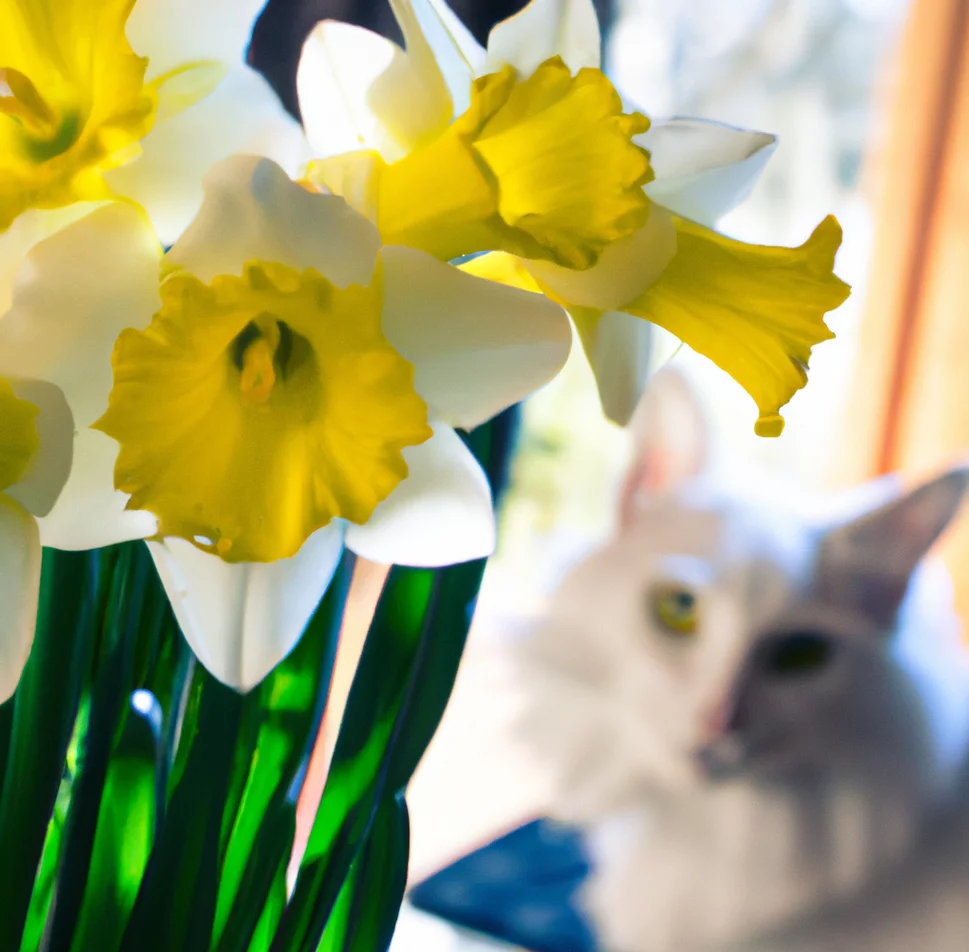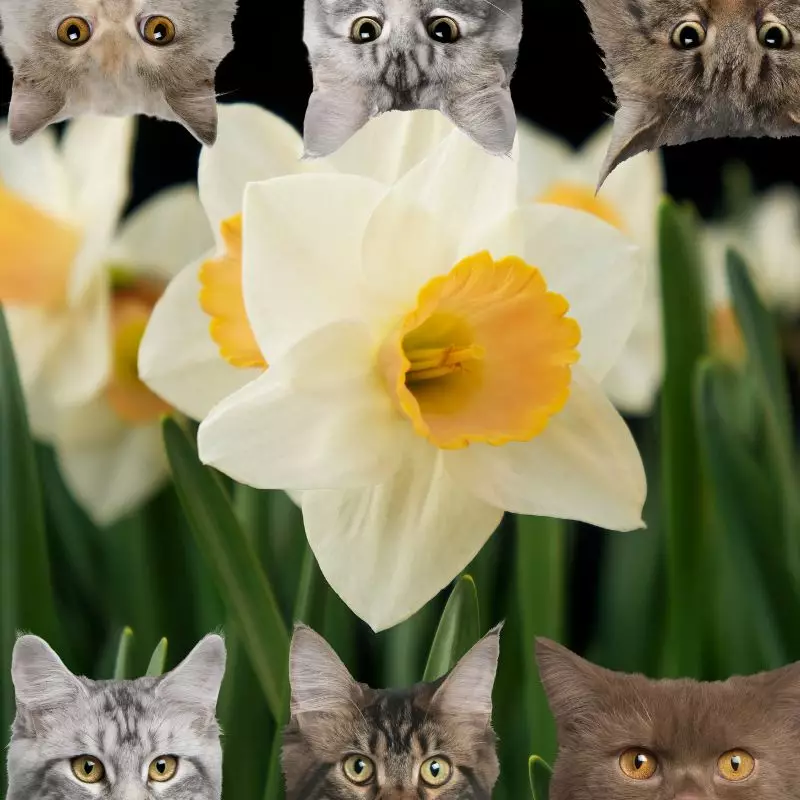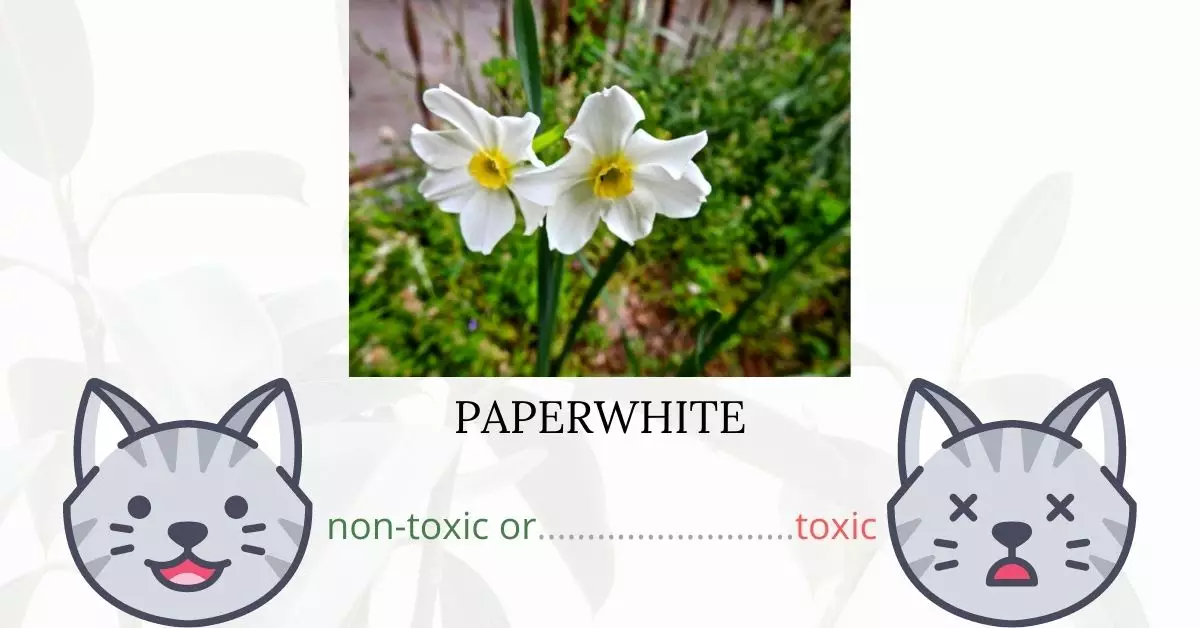Yes, Paperwhites are toxic to cats. The phenanthridine alkaloids present in daffodils, particularly lycorine, are harmful to felines. Specifically, Paperwhites contain toxins such as glucoside scillaine, galantamine, calcium oxalate crystals, and narciclasine. While the toxins are primarily concentrated in the outer layers of the bulb, the flowers and stems also possess a noteworthy amount of these harmful substances. Consequently, if a cat consumes both the foliage and the bulbs, it may experience poisoning.
This article was crafted in collaboration with a team of experienced DVMs (doctors of veterinary medicine). Their expert contributions enable us to deliver accurate and up-to-date information regarding the potential dangers associated with various plants, especially Paperwhites, and their impact on cats. Moreover, our insights are bolstered by thorough research from high-authority websites such as ASPCA and PetMD, ensuring a comprehensive understanding of every plant discussed.
Clinical Signs of Paperwhite Poisoning in Cats

When cats come into contact with, smell, or ingest the Paperwhite plant, they can manifest a range of symptoms. These symptoms result from the body’s reaction to the various toxins present in the plant, especially glucoside scillaine, galantamine, calcium oxalate crystals, and narciclasine. Depending on the amount consumed and the cat’s individual sensitivity, the manifestation and intensity of these symptoms can vary.
Immediate reactions:
- Excessive drooling: This is a common initial response, as the cat’s body attempts to expel or neutralize the toxins. The unusual taste and irritation caused by the plant can also lead to drooling.
- Diarrhea: The toxins from the Paperwhite plant can irritate the cat’s gastrointestinal system, leading to diarrhea as the body tries to eliminate the ingested substance quickly.
- Vomiting: Induced by the body’s natural mechanism to get rid of ingested harmful substances, vomiting can occur when the cat’s stomach reacts adversely to the toxins.
Severe reactions (especially after consuming large portions):
- Low blood pressure: Toxins in the Paperwhite can affect the cardiovascular system, leading to a drop in blood pressure.
- Lethargy: The cat’s energy levels may diminish as its body battles the ingested toxins.
- Sedation: Some components of the Paperwhite can have sedative effects on the cat’s central nervous system.
- Shivering and muscular tremors: Resulting from the body’s adverse response to the toxins, this indicates a neurological effect.
- Convulsions: Severe neurological reactions to the toxins can lead to uncontrollable muscle contractions.
- Increased heart rate and cardiac arrhythmias: The cardiovascular system can get overstimulated or irregularly affected due to the toxins.
- Abnormal breathing and respiratory depression: The respiratory system can be adversely impacted, leading to difficulty in breathing or reduced breathing rate.
- Kidney damage: Some toxins in the Paperwhite have the potential to harm the renal system, leading to acute or long-term kidney issues.
It’s essential to note that the onset of these symptoms can be as rapid as 15 minutes or might take up to 24 hours post-ingestion. If you suspect your cat has come into contact with or consumed a Paperwhite plant, it’s crucial to consult a veterinarian immediately.
First Aid and Treatment of Paperwhite Poisoning in Cats

Because no specific treatments for paperwhite poisoning have been developed, your veterinarian will treat your cat based on its symptoms. Your vet will flush remaining plant bits from your cat’s mouth by gently washing it out with cool water. Your veterinarian will not have to force your cat to vomit. One of the toxins’ emetic properties will cause your cat to vomit on its own. If your cat has vomited frequently, your vet may decide to perform gastric lavage to clean out its stomach.
If your cat has been severely poisoned by paperwhite ingestion, your veterinarian may recommend fluid therapy, dexamethasone, and atropine. Your pet should recover well as a result of this supportive care.
Recovery from Paperwhite Poisoning in Cats

Your cat should be able to fully recover after receiving veterinarian attention. Depending on how badly the cat was poisoned and how much of the plant it ate, recovery can take anywhere from 24 hours to a week.
Prevention of Paperwhite Poisoning in Cats
Remove all paperwhite flowers from your house and yard. Make sure to properly dispose of plant parts so that your cat cannot get to the dried stems, leaves, flowers, or bulbs. Plant cat-safe grasses to satisfy your cat.
If you love plants but have cats at home, check out these lists:





